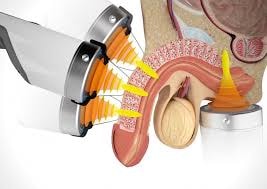Table of Contents
- Introduction to Sexual Health and Aging
- The Impact of Aging on Sexual Health
- Treatment Options for Sexual Health Issues: Sexual Dysfunction
- Innovative Therapies for Sexual Health: Shockwave Therapy
- Lifestyle Changes for Improving Sexual Health
- Communicating with Your Partner
- Seeking Medical Help
- The Importance of Regular Sexual Intercourse
- Shockwave Therapy for Erectile Dysfunction
I recently revisited a 1996 study titled “Sexuality and Aging – Usual and Successful” that explored how older adults felt about their sexual lives. The timing of this study, just before modern treatments like Viagra, Cialis, and shockwave therapy (Low-Intensity Extracorporeal Shock Wave Therapy, or LI-ESWT), is striking—it wasn’t that long ago, yet it feels like a world away. The arrival of Viagra in the late ‘90s, followed by Levitra and Cialis, marked an unheralded but revolutionary shift in the treatment of erectile dysfunction. Suddenly, men no longer had to face the emotional withdrawal and isolation that often accompanied sexual dysfunction. What a different world it is now, where there’s a tangible solution. Of course, there are still other challenges that men face, but the ability to correct this particular issue has brought immense relief and changed the landscape of men’s health in profound ways.


Interestingly, the rise of Viagra hasn’t just improved men’s lives—it’s also had surprising environmental benefits. As Viagra became more popular, demand for traditional Chinese medicines using animal parts like tiger penises, seal penises, and reindeer antlers declined. This has likely helped conserve these animals, showing that modern medicine can have broader impacts than we might think. It’s a feel-good story where technology and business have actually helped protect endangered species—proving that caring for men’s sexual health can have unexpected positive effects.
We’re now in a much better place than pre-Viagra. There are more ways to stay sexually active and content as you age. For women, this means understanding the unique pressures men face, especially regarding physical performance. The dynamics of intimacy can sometimes create a paradox: the desire to connect can lead to performance anxiety, which undermines the connection both partners seek. Find a physician who recognizes the importance of both general and sexual health. It’s not about trying to be 20 again; it’s about finding ways to stay happy, healthy, and connected at YOUR age.
Introduction to Sexual Health and Aging
The Impact of Aging on Sexual Health
Common Sexual Health Issues in Aging Men and Women: Erectile Dysfunction
Treatment Options for Sexual Health Issues: Sexual Dysfunction
Fortunately, there are a variety of treatment options available for sexual health issues, including extracorporeal shockwave therapy. Radial pressure wave therapy is another innovative treatment that can be considered.
For men, medications like Cialis and Viagra have revolutionized the treatment of erectile dysfunction, offering a reliable solution for many. Hormone replacement therapy (HRT) can also help boost testosterone levels. Women may benefit from HRT, vaginal estrogen therapy, or lubricants to alleviate vaginal dryness. Beyond medications, lifestyle changes such as regular exercise, a healthy diet, and effective stress management can also play a crucial role in improving sexual health. These treatments and lifestyle adjustments can help individuals regain confidence and enjoy a fulfilling sex life.
Innovative Therapies for Sexual Health: Shockwave Therapy
Lifestyle Changes for Improving Sexual Health
Communicating with Your Partner
Open communication with your partner about sexual health is crucial for maintaining a strong and fulfilling relationship. If you’re experiencing erectile dysfunction (ED) or other sexual health issues, it’s essential to discuss these openly with your partner. This dialogue helps both of you understand each other’s needs and work together to find solutions.
Seeking Medical Help
The Importance of Regular Sexual Intercourse
However, erectile dysfunction (ED) can disrupt a regular sex life. If you’re experiencing ED, it’s important to talk to your partner and seek medical help. With the right treatment and support, you can overcome ED and maintain a satisfying sex life. Remember, regular sexual intercourse is not just about physical intimacy; it’s also about emotional connection and intimacy. Prioritizing your sexual health can help you maintain a strong and fulfilling relationship with your partner.
Shockwave Therapy for Erectile Dysfunction
Future Directions in Men’s Aging and Sexual Health
Peak Masculinity
Starts Here

By Dr. Ryan Welter
August 15, 2025




